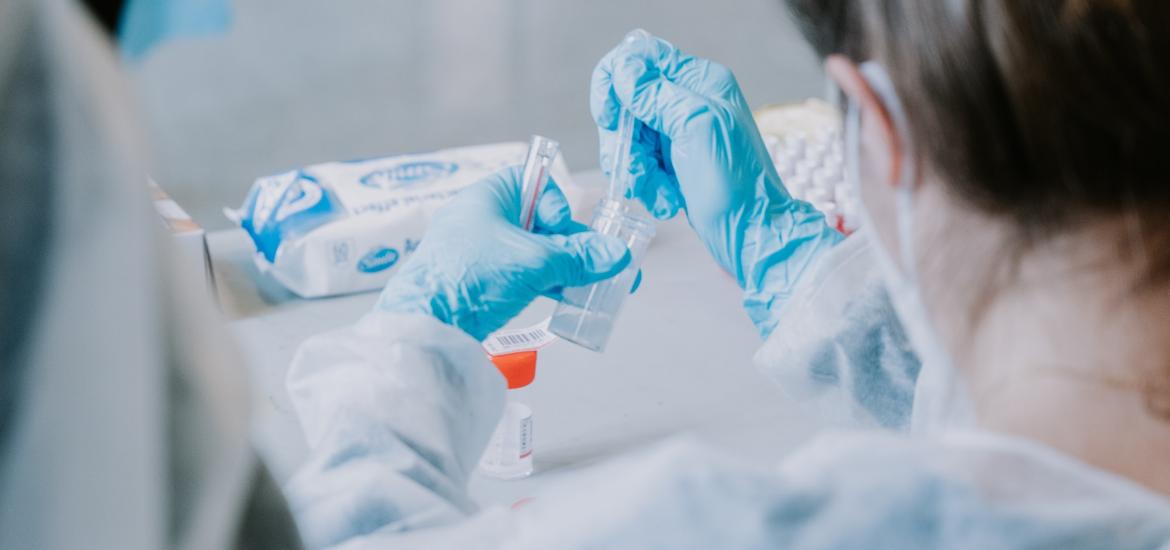
First phase 1 starters challenge Pluvicto and Revolution
The latest first-in-human trial entrants include several novel mechanisms, a PSMA radioconjugate and a new pan-KRAS challenger.
The latest first-in-human trial entrants include several novel mechanisms, a PSMA radioconjugate and a new pan-KRAS challenger.

Shanghai YingLi’s YL-17231, claimed to be a pan-KRAS inhibitor, started its first human study recently, and features as one of nine biopharma projects disclosed over the past week as entering phase 1 for the first time.
The list includes two fusion proteins, a DGKα inhibitor from Gilead as well as a new Car-T asset from that company's Kite division, and a Pluvicto rival from the little-known Sinotau Pharmaceuticals. Innovent is pursuing a dual-target approach with a new multiple myeloma T-cell engager, while GSK and Ideaya’s synthetic lethality tie-up lives on through a Pol Theta inhibitor.
That last deal had come into question after GSK declined an option over Ideaya’s MAT2A inhibitor IDE397. But preclinical work on the companies’ Werner helicase series continues, and now the Pol Theta inhibitor GSK4524101/IDE705 is scheduled to start phase 1 next month, according to a new listing on the clinicaltrials.gov registry.
ESMO read-across
Still, perhaps the most interest will be generated by the first-in-human entry of Shanghai YingLi’s YL-17231 and Sinotau’s anti-PSMA radioconjugate 177Lu-XT033.
Both approaches will feature at ESMO this weekend. Revolution Medicines will continue presenting data on its range of KRAS blockers, including the multi-RAS inhibitor, RMC-6236. Meanwhile, the PSMAfore study of Novartis’s Pluvicto, which like Sinotau’s is a 177Lu-labelled anti-PSMA, is the subject of a keenly awaited late-breaker.
Recently disclosed first-in-human studies*
| Project | Mechanism | Company | Trial | Scheduled start |
|---|---|---|---|---|
| YL-17231 | Pan-KRAS inhibitor | Shanghai YingLi | KRAS+ve solid tumours | 28 Sep 2023 |
| MBQ-167 | Rac/CDC42 inhibitor | MBQ Pharma | Ph1 monotherapy in breast cancer | 5 Oct 2023 |
| 177Lu-XT033 | Anti-PSMA radioconjugate | Sinotau Pharmaceuticals | Ph1 in mCRPC | Oct 2023 |
| GS-9911 | DGKα inhibitor | Gilead | +/- zimberelimab in solid tumourss | Oct 2023 |
| PB101 | Anti-VEGF-A/PlGF Fc-fusion protein | Panolos Bioscience | Ph1 in solid tumours | Oct 2023 |
| KGX101 | IL-12/Fc fusion protein | KangaBio | Ph1 in solid tumours | 2 Nov 2023 |
| GSK4524101/ IDE705 | Pol Theta inhibitor | GSK/ Ideaya | +/- Zeujla in solid tumours | 9 Nov 2023 |
| KITE-197 | Anti-CD19 (?) Car-T | Gilead | Ph1 in B-cell lymphoma | Nov 2023 |
| AZD5851 | Anti-GPC3 dnTGFbRII Car-T | AstraZeneca | Athena, GPC3+ve liver cancer | 18 Dec 2023 |
| IBI3003 | Anti-GPRC5DxBCMA T-cell engager | Innovent | Ph1 in r/r multiple myeloma | 1 Feb 2023 |
Note: *projects newly listed on the clinicaltrials.gov database between 10 and 16 Oct 2023.
The South Korean group Panolos is entering the clinic with an anti-VEGF-A/PlGF Fc-fusion protein, while Australia’s KangaBio next month plans to be in phase 1 with an IL-12/Fc fusion approach.
Novel mechanistic approaches include MBQ-167, a Rac/CDC42 inhibitor from the Puerto Rican company MBQ Pharma, and Gilead’s DGKα inhibitor GS-9911. OncologyPipeline reveals Bayer’s BAY 2862789 as the only other clinical-stage DGKα inhibitor, while there are only preclinical assets targeting either Rac or CDC42, and none other hitting both.
Gilead’s KITE-197, meanwhile, has no disclosed target, but from its phase 1 inclusion criteria it seems likely to hit CD19. As it’s being positioned in patients relapsed on prior CD19-directed therapy it’s likely to involve some other novel element, for instance an allogeneic approach or a construct with a fully human binding region.
Multiple myeloma treatment has seen many advances of late, first through therapies hitting BCMA and later those binding to GPRC5D, such as Johnson & Johnson’s Talvey. Now Innovent is taking forward IBI3003, a MAb that hits both targets and engages T cells via CD3; the dual-antigen strategy is presumably an attempt at delaying patients’ relapses.
Here Innovent is not first, however. Several Car-T projects take this dual approach, including a preclinical asset from Bristol Myers Squibb, while J&J’s JNJ-79635322 is, like IB3003, an anti-BCMA x GPRC5D T-cell engager and has been in phase 1 since last November.
1713













